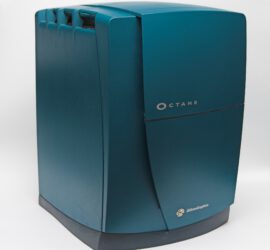One peculiarity of Rust is its Result type. In many other programming languages, you’ll probably use a bool or int to indicate successful function execution. If you’re new to Rust and take a look at Rust code, you’ll […]
Blog
Despite a history with Linux that reaches back more than 25 years, Windows is my main desktop operating system – partly because having been in corporate environments where I was force to use it, partly because […]
All images sourced from Wikipedia unless otherwise noted. What is a workstation? Wikipedia’s definition starts with A workstation is a special computer designed for technical or scientific applications. Intended primarily to be used by a single […]
Thinking back about the past is a side effect of getting older. So when I recently configured a new workstation, I couldn’t help thinking back about my first PC. I had bought it in 1993, a […]
After first investigating Rust superficially some time ago, I’ve now started to really use it. As I’ve written before, my programming background is C/C++, Fortran, C#, and more recently Python. With that experience, some things about […]
So far, all my data processing pipelines required manual intervention or were tied together with batch/shell scripts. In most cases, I had to copy batch scripts to the folder where they had to process data, and […]
LAZ is my preferred point cloud format, as it is a lossless compressed format that is considerably smaller than uncompressed LAS. One thing that has always bugged me is that reading LAZ is quite slow, at […]
Despite having AI in the company name, I’m somewhat critical of the benefits provided of generative AI/Large Language Models (LLMs). I find that the answers often leave something to be desired, and the general consensus now seems to […]
Computers don’t age as fast as they used to. My first computer, bought in 1993, was a 386 DX 40 with 4MB RAM and 170MB harddisk. It was replaced six years later with a Pentium III […]








